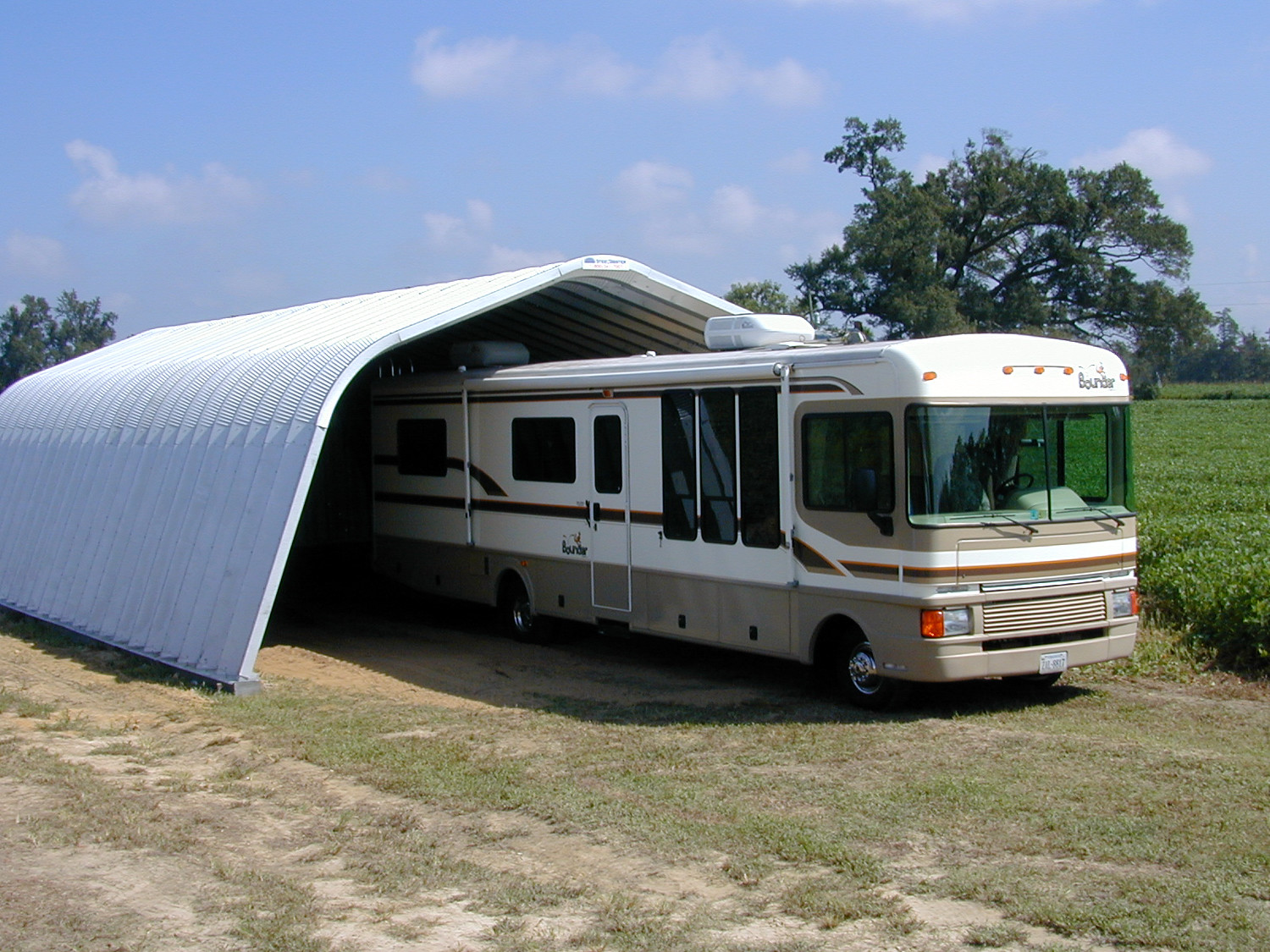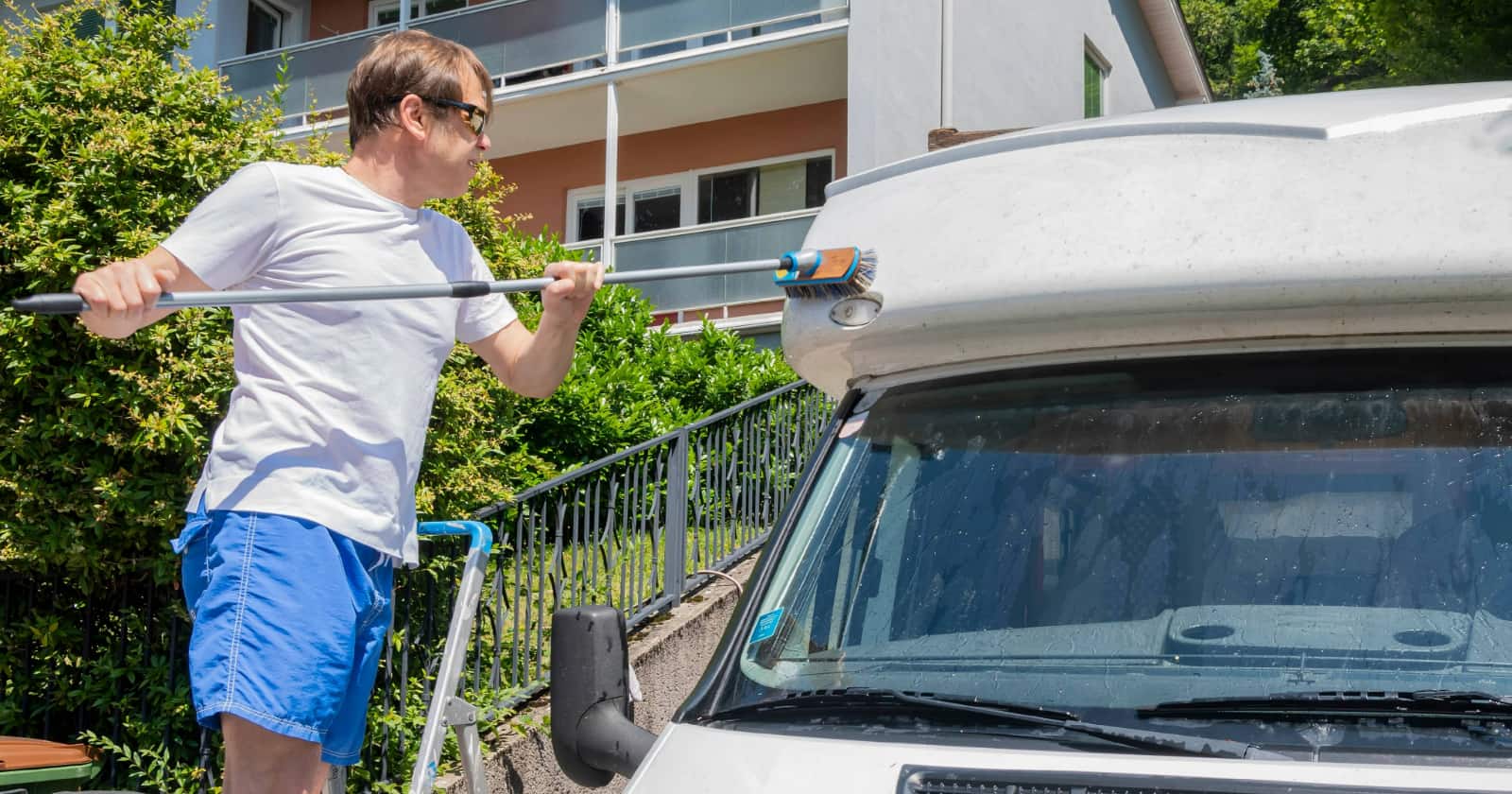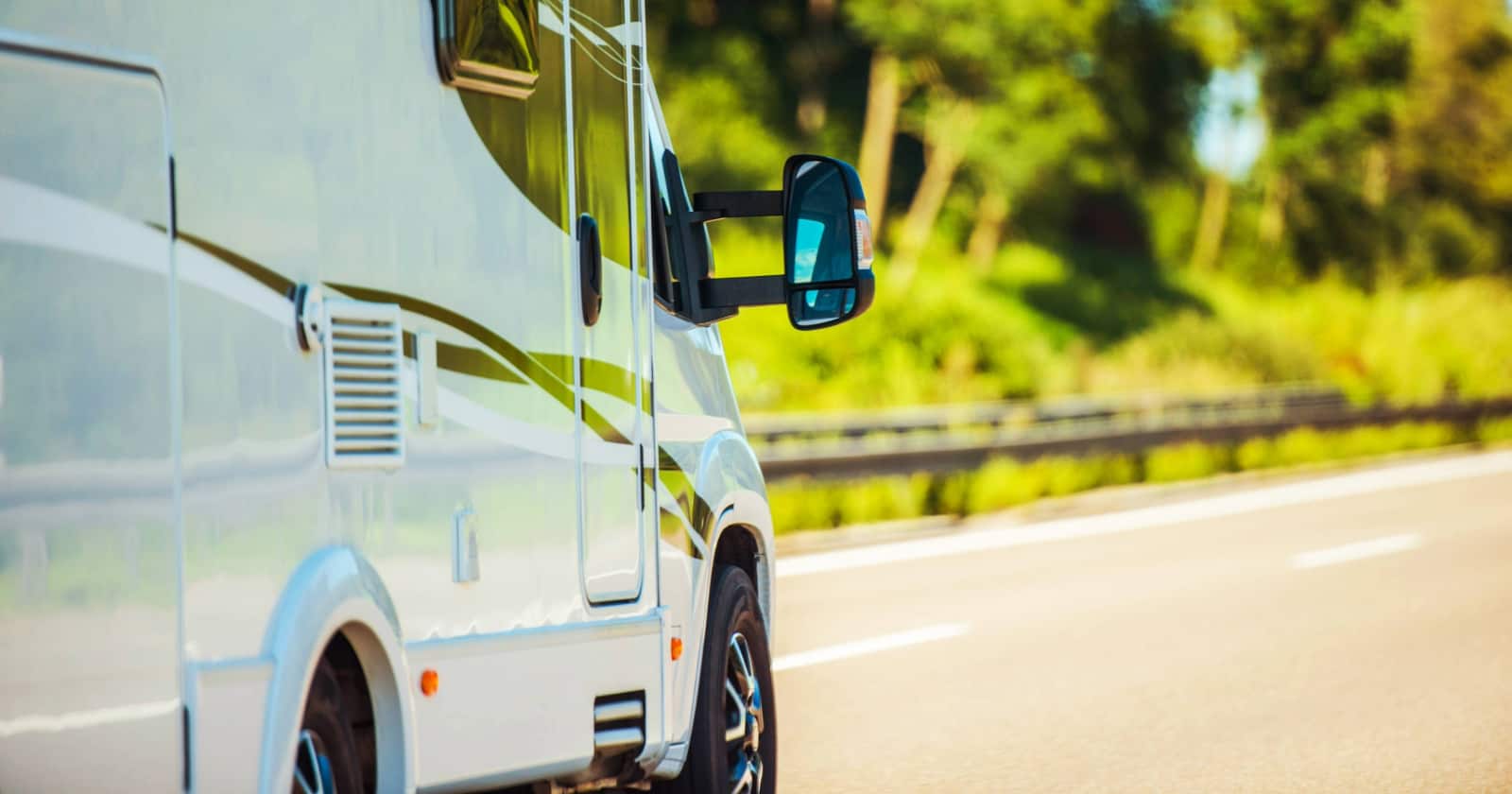
7 Important RV Maintenance Tips To Avoid Costly Repairs
Recreational vehicles require all the standard maintenance of your car, truck, or SUV, plus a whole lot more (if you had your RV for more than a few months then you probably learned this the hard way). After all, an RV is more than just a vehicle. It can be an office, kitchen, hostel, safe room, readers nook, vacation cottage, and for many, it is the place they call home.
With the average cost of a new RV sneaking up on the six-figure mark, they often cost more than many homes. Preventative care and maintenance can keep costly repairs to a minimum. Below we will share our top RV maintenance tips and reminders to protect the hefty investment you made in your RV.
RV Maintenance Tips #1: Cover your roof
When it comes to RV maintenance tips, RV roofs tend to get a lot of attention as they are especially susceptible to sun and environmental damage, which can create problems that often go unseen because we simply don’t get up there regularly. Out of sight, out of mind. But that philosophy can cost you big time. Replacing and repairing an RV roof can easily cost into the thousands.
One of the best things you can do is to keep your vehicle stored under an RV carport or traditional RV cover. For reference, you can see several great examples of the steel RV carport here. Steel RV covers can be installed on your property and customized to meet the size of your specific vehicle. They often come with warranties of up to 40 years, providing your RV’s roof a lifetime of protection.
If you’re a full-timer, then the best you can do is have your RV roof cleaned on a regular basis. Hopefully, you can find a loving family member or friend to do it for you as it can be daunting. The good news is that this will also cut down on the amount of the hated “black streaks” that appear on the sides of your RV.
RV Maintenance Tips #2: Run your generator
Letting your generator sit unused for too long could cause you to replace it years before you should. Gasoline has a shelf life of about 30 days. After that time, it can start to break down and damage your generator’s internal components. You have to “keep it flowing” for lack of a better phrase.
To do so, it’s recommended that you run your generator two hours a month around 50% load. This will keep it primed and ready. Failure to do so can cause your carburetor to varnish, preventing fuel from effectively powering the generator. There’s no reasonable way to clean it, so you may end up having to replace it, which needless to say will be costly.
RV Maintenance Tips #3: Watch your window, door, and roof seals
A common problem with RVs is moisture leaking into the vehicle through faulty weather stripping and seals. Seals naturally degrade over time, and some brands are notorious for not using great seals to begin with.
When seals start to break down, they allow water to seep in, damaging surfaces and promoting mold. Check seals around windows and doors every three months to ensure a snug fit and no deterioration. Doesn’t hurt to check the roof seals every six months or so as well. Keep an eye out for any cracks, loose pieces, water stains, etc. Even small cracks can allow water to get it. Some RVers will periodically have items removed and resealed just to be sure no water finds its way in.
RV Maintenance Tips #4: Open the vents
Not all RV maintenance tips need to ask for your hard-earned dollars. During times when your RV sits unused over the summer, the temperature inside can exceed 130 degrees depending on your location. That kind of heat causes even the toughest materials to break down and fail over time.
Wall coverings, seals, seams, flooring, among other items will slowly deteriorate and cause sooner than needed repair headaches. Keeping your RV vents open promotes airflow through the vehicle and keeps the temperature down. Make sure your exterior vents are covered, however, to avoid rainwater making its way inside. If you can find a covered area to store your RV when not in use, it will mean wonders for the lifespan of your RV.
RV Maintenance Tips #5: Lubricate your slide-out rails
The sound of a squeaky pop-out can be like nails on a chalkboard. But that squeak is more than just a nuisance, it’s a sign that your slide-out rails need some tender loving care. Letting your slide-out rails go without proper lubrication can cause deterioration due to rust and corrosion.
Experts recommend that you should apply lubricant to your rails once or twice a year, depending on how often you use your RV. This should be enough to keep your slide-out squeak-free all season long. You can find a can of lubricant spray, specifically designed for slide-outs, for around $15. Which is cheaper than replacing any worn out slide outs!
RV Maintenance Tips #6: Keep your tires in good condition
Keep your tires clean, protected, and covered when in storage or parked for an extended period. The sun’s UV rays can deteriorate your tires rapidly, requiring them to need replacement long before you’ll ever wear out the tread.
After cleaning your tires, treat them with a UV protectant such as 303 Aerospace Protectant. When storing your RV, cover your tires with an RV Tire Cover. Be sure to verify your wheel diameter before purchasing.
RV Maintenance Tips #7: Document your RV maintenance
Keep track of and document these and other maintenance tasks with an online maintenance tracking tool such as RV LIFE Maintenance. Not only can you keep all your maintenance records and documents in one place, but you’ll also receive timely reminders via email when maintenance is due.
Whether you have a small camper or large Class A motorhome, RV LIFE Maintenance can keep track of it all, along with two additional vehicles, such as a tow car, motorcycle, or four-wheeler.
Do you have any additional RV maintenance tips that you use to keep your rig running like a dream? Please share them in the comments section below!





303 protectant it is a protectant that can be used on many things. I use it on our fiberglass camper, auto paint and rubber door seals as well as all my tires.
I have a class A motor home in storage right now. I have a friend that runs a tire company for big trucks and RV’s for over 20 years and he told me to use the levelers to take the weight off the tires and use tire covers. That way you won’t have flat spots on your tires and also the covers will help keep the sun off of them. He recommended white or silver covers to keep the sun and heat off of the tires. This is my first RV.
Thanks for all the useful comments on the generator.
good points … speaking of tire maintenance, we all know a car parked for a long period of time while its tires are being ‘pressured’ on only one side, ie, the side that is touching the ground or cement or a parking surface of any kind, they’ll get badly damaged on that particular side after say more than a couple of months, let alone more time! (people have experienced very dangerous tire blowouts while driving on the highways and speeding up in freeways due to just that!)
one solution to that would be to deflate the tire half-way through, but to do a better job, we need some kind of ‘riser feet’ to place under the vehicle near the tires to raise the tires up from the ground so they won’t touch the ground when the vehicle is parked for long periods of time!
Have your wheel bearings lubricated twice each year to prevent dire consequences and keep the tire pressure correct at all times.
One other note: I just replaced 2 wheels on my
5th wheel when I found 2 flats that were not due to tires. I will replace the final two before heading out again!
Gasoline having a shelf life of only 30 days is just not true. I have an open frame generator for backup power as I live along the gulf coast and should a hurricane come it can come in real handy. I keep it filled with the fuel valve off and a couple of 5 gallon cans full for about 6 months at a time. After 6 months I will drain the gas out of my generator and the five gallon gas cans and run them through my truck and have been doing so for a number of years without a problem. I then add Stabil to the empty gas cans and go get fresh gas, enough for 5 gallons in the generator and 2 5 gallon cans. After refilling the generator I run it for a few minutes and it usually starts on the very first pull. When I’m ready to turn it off I shut off the gas valve and let the carburetor run out of gas. This has always worked well . In some areas you can find ethanol free gas which would be a better choice for a generator but I would still add the Stabil
Tire manufacturers DO NOT RECOMMEND USING ANY TIRE DRESSING ON RUBBER TIRES.
After a period of time and especially in a LONG TIME STORAGE Situation. The Tire Dressing will break down and hurt your tires.
Tire Covers should only be used to keep your tires out of the SUN!